Opening Words
Message from the UNCAC Coalition Chair
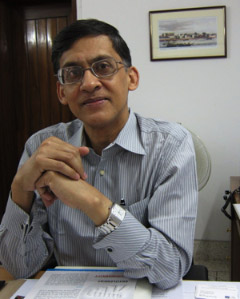
by Manzoor Hasan, 9 December 2016
The year 2016 will be remembered for the tremendous political changes that shaped lives and futures all around the world. Throughout this tumult the spectre of corruption – with its ability to undermine trust in political institutions and its far-reaching effects on sustainable development – has never been far from the centre. Continue reading →
Starting the second review cycle
Catalyst for reform: How a peer review mechanism changed the anti-corruption landscape

by Brigitte Strobel-Shaw, 29 November 2016
Driven by the desire to bring the full force of international cooperation and partnership down on endemic corruption, the UN Convention against Corruption (UNCAC) is transforming the way the world grapples with this destructive crime. Continue reading →
Consistent commitments: Civil society calls on OGP governments to pledge transparency in the second review cycle of the UNCAC

by Christine Clough and Peter Tausz, 6 December 2016
This year the Open Government Partnership (OGP) is celebrating its five-year anniversary, having grown from eight participating countries to 70 by 2016. At the same time the 180 signatories to the UN Convention against Corruption (UNCAC) have launched the second review cycle of their commitments under the Convention on prevention (chapter II) and asset recovery (chapter V). Continue reading →
UNCAC second review cycle: What’s happened so far?
11 December 2016
As we start the second review cycle of the UNCAC review process, we have been asking members in the countries participating in the first year about their experiences so far, in Burundi, Indonesia, Mexico, Nigeria, and Sri Lanka Continue reading →
Interview with Ady Macauley, Commissioner of the Anti-Corruption Commission of Sierra Leone

11 December 2016
At the 17th International Anti-Corruption Conference in Panama, Gillian Dell of Transparency International conducted an interview below with Commissioner Ady Macauley. Continue reading →
Special topics
Compensation for victims of corruption: Why does it matter?
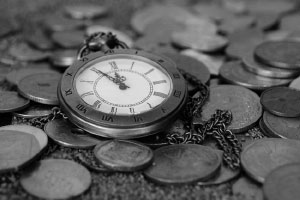
by Sue Hawley, 3 December 2016
The mantra “corruption is not a victimless crime” is used frequently – by anti-corruption NGOs, government officials and even judges. Yet victims of corruption are rarely represented in court proceedings, rarely consulted about corruption investigations, and rarely compensated. In practice, enforcement action against international corruption is effectively a victim-free zone. Continue reading →
UNCAC obligations invoked in support of efforts against wildlife trafficking in Vietnam
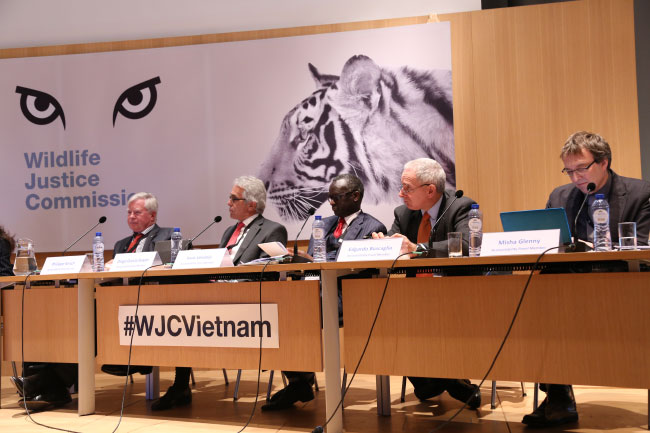
by Olivia Swaak-Goldman, 6 December 2016
Wildlife crime is the fourth largest illegal trade in the world, trailing only behind drug trafficking, human trafficking and counterfeiting in generating revenues for transnational criminal networks: some estimate it generates around 20 billion euros a year. Continue reading →
What does the UK beneficial ownership data show us?

by Robert Palmer and Sam Leon, 22 November 2016
UK companies with hidden owners lie behind some of the worst problems of our time. Amongst other things they have been used to breach UN sanctions, evade taxes and rip off ordinary citizens. That’s why Global Witness has been calling for an end to these getaway cars for crime and corruption for years (see this TED-Ed animation for a short introduction to the issue). Now, we’re seeing the first seeds of change – in June, the UK government started publishing the world’s first open data register of the real owners and controllers of companies – known as “beneficial owners”. Continue reading →
Focus on the Americas
Breaking the Corruption Chain in Belize: The campaign for good governance and UNCAC accession
by the Executive Council of the Belize Chamber of Commerce and Industry, 10 December 2016
For more than a decade the Belize Chamber of Commerce and Industry (BCCI) has been advocating for better governance, accountability in public office, more e-government platforms and public sector reforms as key enablers for private sector growth.[1] In late July of 2016 following a string of events that exposed deep rooted corruption in the government, the BCCI’s Executive Council unanimously decided to make the fight against corruption its most urgent priority. Continue reading →
Brazilian prosecutors awarded Transparency International’s 2016 Anti-Corruption Award
4 December 2016
On 2 December 2016, Transparency International presented the Brazilian Força-Tarefa Lava Jato (Carwash Task Force) with its Anti-Corruption Award, which honours remarkable anti-corruption individuals and organisations around the world. Continue reading →
Focus on asset recovery in Nigeria
Weak systems for asset recovery in Nigeria improving under civil society scrutiny

by Rev David Ugolor, 9 December 2016
In 2016 the government of Nigeria set up a Presidential Committee on Asset Recovery, which in a departure from previous initiatives includes civil society groups as members. This alongside efforts to strengthen the asset recovery regime with new legislation, including a bill to establish a National Financial Intelligence Unit and a bill on the proceeds of crime, is a positive change demonstrating readiness to tackle asset recovery in an open and participatory manner. Continue reading →
Recovering stolen loot: SERAP’s work on asset recovery in Nigeria
by Timothy Adewale, 10 December 2016
Asset recovery (UNCAC chapter V), along with preventive measures (UNCAC chapter II), is the focus of the second cycle of the UNCAC review process. The UNCAC promotes international cooperation on the return of stolen assets to its “prior legitimate owners” (Article 57). Below is a brief summary of SERAP’s activities seeking to promote Nigeria’s UNCAC commitments on asset recovery. Continue reading →
Coalition in partnership
UNODC and civil society partner promote implementation of UNCAC at Panama conference
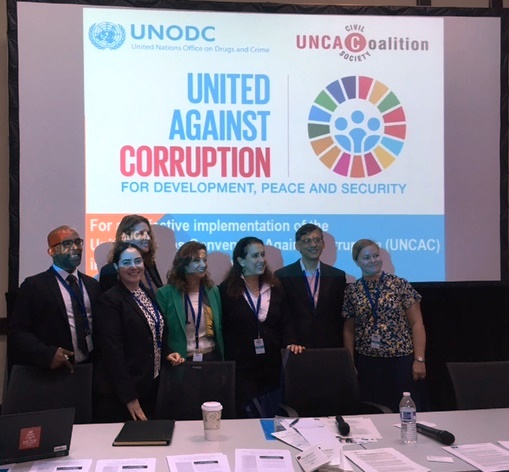
5 December 2016
On the occasion of the 17th International Anti-Corruption Conference (IACC) in Panama, UNODC and the UNCAC Coalition organized a workshop during the global forum on 4 December to raise awareness, share experiences and stimulate debate around two major and complementary instruments which address corruption and advance equality globally: the United Nations Convention against Corruption and the Sustainable Development Goals (SDGs), in particular Goal 16, which promotes peaceful and inclusive societies, strong institutions and access to justice for all. Continue reading →
The first multi-stakeholder workshop on the UNCAC second cycle review created synergies between Africa and Southeast Europe
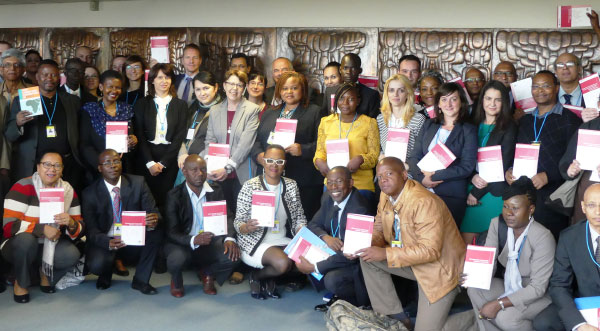
4 October 2016
Cooperation between Governments and Civil Society Organizations (CSOs) in implementing the United Nations Convention Against Corruption (UNCAC) and its second review cycle to prevent and fight against corruption was the focus of a recent multi-stakeholder workshop held at the UN Headquarters in Vienna, Austria. Jointly organized by UNODC and the UNCAC Coalition, the workshop brought together 63 participants from 18 African and Southeast European countries to develop the participants’ capacity to contribute to the implementation of UNCAC and its Review Mechanism, as well as specifically encourage them to work together effectively during the second cycle review. Continue reading →
Member in the spotlight
Indonesia Corruption Watch
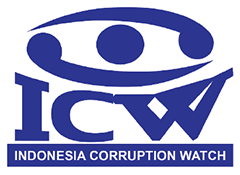
We are fighting for a cleaner political, legal and economic system, and bureaucracy, free from corruption and based on social justice and gender equality. We also aim to strengthen public participation in the policy-making process and in monitoring public policy, such as legal drafting, national and local budget processes, and the law enforcement process in corruption cases. Continue reading →
Calendar of events
- May 2017: UN Commission on Crime Prevention and Criminal Justice, Vienna, Austria
- May/June 2017: UNCAC Implementation Review Group Meeting and Briefing for NGOs, Vienna, Austria
- July 2017: Global Forum on Asset Recovery, Washington DC, USA
- August 2017: Working Groups on Asset Recovery and Prevention, Vienna, Austria
- November 2017: UNCAC Conference of States Parties, Vienna, Austria
Useful resources
We have selected several 2016 publications we think will interest you. We know this is just the tip of the iceberg, so if you have any recommendations for reports to feature in our next newsletter, please send them to info@uncaccoalition.org
2016 State of Civil Society Report
CIVICUS publishes its State of Civil Society report each year to summarise the key events and developments in the civil society community around the world. In 2016, the report’s overarching theme is exclusion and it also highlights the shrinking space for civil society activities and threats to civic freedoms. Read the CIVICUS State of Civil Society Report, June 2016.
Getting the Full Picture on Public Officials: A How-to Guide for Effective Financial Disclosure
In the latest publication in the StAR series on asset recovery, this title suggests that, “disclosure mechanisms have been underestimated and underutilized” and aims to assist in improving and enhancing existing systems, as well as providing a guide for those setting up new ones. Read the StAR How-to Guide for Effective Financial Disclosure, December 2016.
Chancing It: How Secret Company Ownership is a Risk to Investors
A report from Global Financial Integrity and Global Witness that takes us into the world of anonymously owned shell companies, which enable the corrupt to “evade taxes, facilitate bribe payments and skirt sanctions”. With recommendations focused on investors and companies, and a range of useful tools to assist them in managing risks, this is a useful guide for all to understanding this murky world. Read the Global Financial Integrity and Global Witness report on How Secret Company Ownership is a Risk to Investors, September 2016.
Paradise Lost: Ending the UK’s Role as a Safe Haven for Corrupt Individuals, their Allies and Assets
An analysis from Transparency International UK on the UK’s role in enabling the investment and laundering of the proceeds of illicit wealth. With clear explanations of the issues and a list of eight recommendations, the report is a useful read for anti-corruption activists and practitioners around the world. Read Transparency International UK’s analysis on Ending the UK’s Role as a Safe Haven for Corrupt Individuals, their Allies and Assets, April 2016.
Committing to Effective Whistleblower Protection
The OECD has nearly 20 years’ experience working on whistleblower protections. In this in-depth analysis it assesses the progress made, identifies areas in need of reform and makes recommendations for strengthening whistleblower protection legislation. Read the OECD analysis on Committing to Effective Whistleblower Protection, March 2016.
World Wildlife Crime Report: Trafficking in Protected Species 2016
In this 2016 report the UNODC examines the extent and nature of global wildlife and forest crime, focusing on elicit trafficking. As well as a quantitative assessment it provides a series of case studies for a more in-depth look at the problem. Read the UNODC World Wildlife Crime Report, May 2016.
New UNCAC review reports
There are now 145 executive summaries, 67 full country reports and 15 self-assessments from the first review cycle published on the UNODC website on the Country Profiles page.
Since November 2016, the following UNCAC review reports have been released:
- Executive summaries: Cameroon, Ecuador, Malawi, Myanmar, Thailand
- Full country reports: Uruguay
Official country reports are available on both the UNODC website and on the UNCAC Coalition website.
Holiday greetings
Best wishes from the UNCAC Coalition for a happy holiday season and a peaceful new year 2017.
This UNCAC Coalition Newsletter was produced by Gillian Dell, Transparency International Secretariat and Rebecca Dobson, editor, with assistance from Kai Chan, web developer.
The UNCAC Coalition Newsletter is funded by the Sigrid Rausing Trust.



